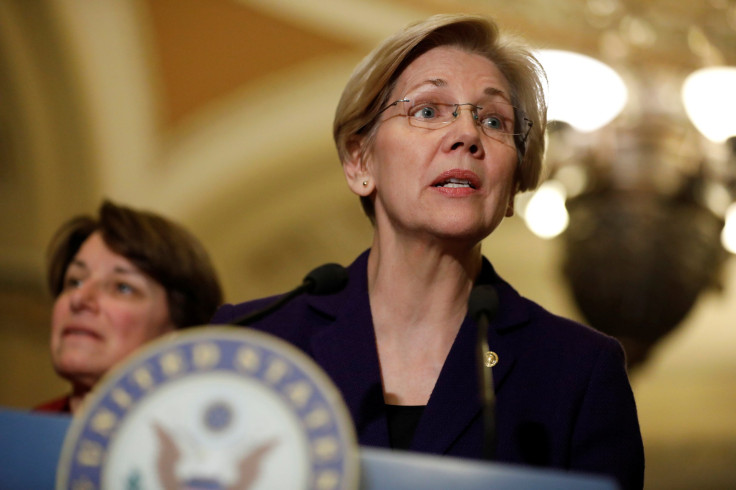Should Donald Trump Be Worried About Elizabeth Warren In The 2020 Election?

After some analysts, and even President Donald Trump, dismissed Elizabeth Warren’s campaign for the White House, the Massachusetts Senator has surged in polls, and in Nevada and California last week is showing second only to former Vice President Joe Biden.
Warren’s campaign almost was a non-starter after comments of her Native American heritage and a DNA test showed she was 1/64th and 1/1024th related to native communities became a talking point for Trump, who called her "Pocahontas."
Elizabeth Warren Downplays Rise in Polls: `It's Way Too Early' https://t.co/Nup5Gp4k8E
— Bloomberg (@business) June 15, 2019
But after a June poll by Quinnipiac University showed her virtually neck-and-neck with Sen. Bernie Sanders, I-Vt., within the margin of error, and polls last week in Nevada and California showed her leapfrogging Sanders into second place, Warren’s campaign appears on the move and interest in her ideas is growing.
Still, Warren faces an uphill battle, primarily because she has eschewed big corporate donors and has focused on a grassroots campaign that hasn’t been nearly as successful as Sanders’. Campaign reports show she has raised about $6 million in the first quarter of the year, while Biden, Sanders and former Rep. Beto O’Rourke eclipsed that amount within 24 hours of announcing candidacy.
However, Warren stands apart from the field in one key way: she has a detailed plan for just about everything, from free college tuition and student loan forgiveness to Big Tech regulation and Pentagon contracting.
Since entering the race for the Democratic nomination, Warren has issued about 20 detailed plans. Most of her competitors have issued less than a half-dozen, and frontrunner Biden has only issued two — one of which came under fire for its similarity to others without attribution.
With so many plans on the table, Warren also has drawn criticism from centrists and conservatives alike, who say her ideas would hurt business and the economy due to increased regulation and taxation. However, like Sanders in the 2016 campaign, by making so many bold proposals, Warren is framing much of the debate in the Democratic primary and, again like Sanders in 2016, those positions appear to be advancing her in polls.
Wall Street is not happy about Elizabeth Warren’s rise in the polls. Could she become president? https://t.co/vx90dSOkuP
— The New Yorker (@NewYorker) June 16, 2019
Robert Reich, former labor secretary under President Bill Clinton, told the New York Times last week, “It’s rare, at this stage of a presidential campaign, somebody distinguishes themselves by the boldness and detail of their policies.”
Reich added, “She is asking the biggest questions that exist, and this is: How do you make a free market work? How do you make capitalism actually work for the many rather than the few?”
© Copyright IBTimes 2025. All rights reserved.





















